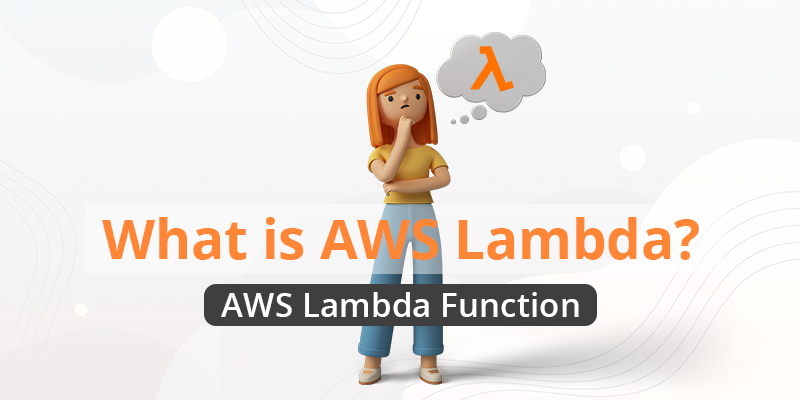AWS Lambda is being noticed by a wide range of customers, including those in the media, entertainment, financial services, and other specialized areas. These customers are interested in optimizing costs, reducing time to market, and increasing speed while focusing on what they do best for running their business. In many industries, Lambda has emerged as the clear solution for essential applications. Learn more about AWS from this AWS Course led by industry experts.

In order to improve performance, scalability, and cost-effectiveness without handling the entire network, more businesses are now utilizing AWS Lambda. One of the many significant services that AWS currently provides is AWS Lambda, which can grow to thousands of continuous requests per second. Your functions may be executed by Lambda when they are generated by events from various AWS services. The Lambda function can also be used with the Lambda API. Prepare yourself for the AWS Solutions Architect certification exam with the best AWS Solution Architect Associate course.
What is AWS Lambda?
An event-driven, serverless computation service called AWS Lambda may add custom functionality to other AWS services or build new backend services that function with scalability, efficiency, and safety.
Lambda can execute code in reaction to a variety of events, including HTTP requests made using Amazon API Gateway, changes made to data in Amazon S3 buckets, updates made to tables in Amazon DynamoDB, and analyze trends in AWS Step Functions.
Every website or android application can also be used to directly execute code. Your code can be executed on highly flexible, dynamic infrastructure using Lambda. It manages computational resources and performs server and operating system maintenance, auto-scaling and capacity provisioning, and other related duties.
Moreover, you can build serverless apps or backend services using Lambda, which connects with many other AWS services. These applications can be as simple as frequently triggered, as simple automation activities or as complex as full-fledged microservices applications.
AWS Lambda function
The purpose of a Lambda function is to either analyze the event that started it or to do some other action in response to that event. Each function must be written in a neutral manner, indicating it must be unaware of the actual computing environment. All necessary data would have to be transmitted to some other system. For example- Amazon S3, Amazon DynamoDB etc.
Working of AWS Lambda
AWS manages AWS Lambda’s whole infrastructure layer. Customers don’t have much access to the workings of the system, but they also don’t have to worry about maintaining the underlying computers, avoiding congestion issues, etc. because AWS handles all of this on its own.
Below we mentioned the AWS Lambda components and its execution model.
AWS Lambda components:
- Lambda functions are independent, autonomous processes that are started by the AWS Lambda engine and halted after they have completed the work.
- Function packaging is in charge of shortening Lambda functions together with their dependencies and sending them to AWS. The function needs to be zipped first and then transferred to an S3 bucket.
AWS Lambda execution model:
- A container is an operational unit that includes a Lambda function and uses AWS-managed resources to execute the function.
- Containers for instance are immutable, therefore you cannot access them once they have finished. AWS Lambda creates instances or copies of the container to enable on-demand consumption.
- Stateless procedures where each Lambda function is optimised and managed by AWS and is normally called once for every container formation.
- Events request that a single Lambda function instance handles. Events often stream from other areas of the Amazon ecosystem, such as databases like CloudWatch events, DynamoDB, or modifications to files on S3, and they cause a Lambda function to process the event’s contents.
AWS Lambda benefits
Before Lambda got introduced, traditional web applications were often developed on Web Platform, EC2, or similar hosting platforms. However, when AWS Lambda functions are involved, this process gets automated, for provisioning and server release. AWS Lambda makes this process so easy that many small, medium and large enterprises have decided to use the latest technical solution from AWS.
So below are some of the benefits of AWS Lambda that you must know:
- Low cost- Adoption of AWS Lambda services has several advantages, one of which is that the project as a whole turns out to be quite affordable. In this case, you only have to pay for the services that you actually utilise. The whole operational cost is essentially reduced as a result. Additionally, in this instance, you are no longer concerned with the server time’s wasted minutes.
- Updated applications- By using features with pre-trained machine learning models, AWS Lambda makes it simple to incorporate artificial intelligence into applications. One API call can categorise images, examine movies, translate audio to text, interpret natural language, and more.
- Pay what you use- It provides significant savings, excellent availability, and flexibility for developing serverless applications. You only pay for the computational resources you actually use and it’s all because of AWS Lambda’s pay-per-request pricing structure and autoscaling features.
- Assists in developing a reliable system- AWS Lambda’s capacity to support both large-scale and early-stage applications is one of the reasons it has quickly gained popularity as one of the top options. AWS runs the Lambda function concurrently with several other Lambda functions for applications with a significant load. Moreover, several instances of the same Lambda function may be deployed and executed concurrently.
Conclusion
So in this blog, we discussed the AWS Lambda functions along with the working and benefits of AWS Lambda. Now you know, a robust toolkit is provided by AWS Lambda for creating scalable and secure applications. With Lambda, all you need to do is submit your code and specify when to run it and Lambda will take care of the rest, allowing you to execute your code with high reliability. There are many security and compliance best practices that apply to all AWS services, whereas some are exclusive to Lambda.

